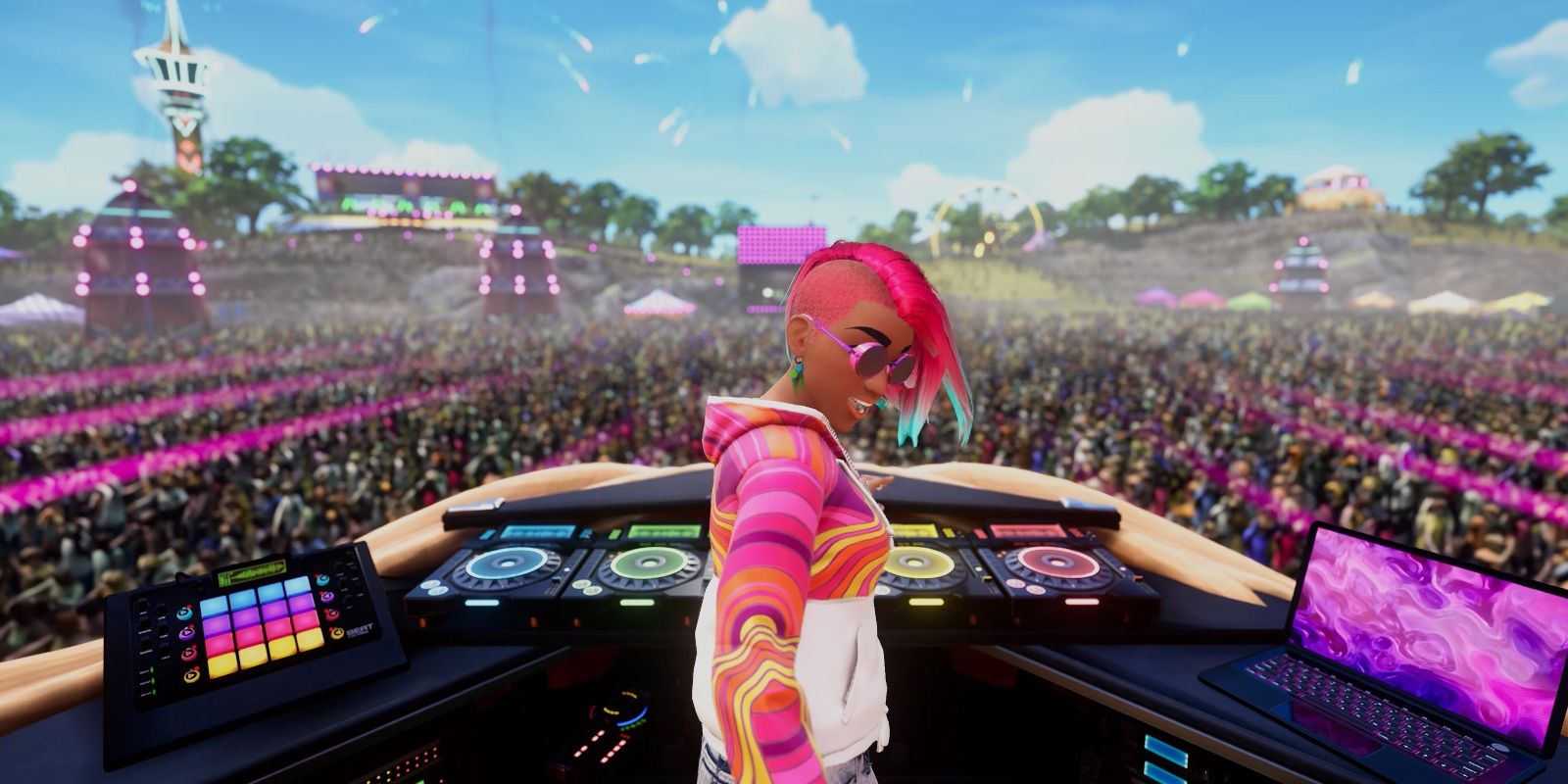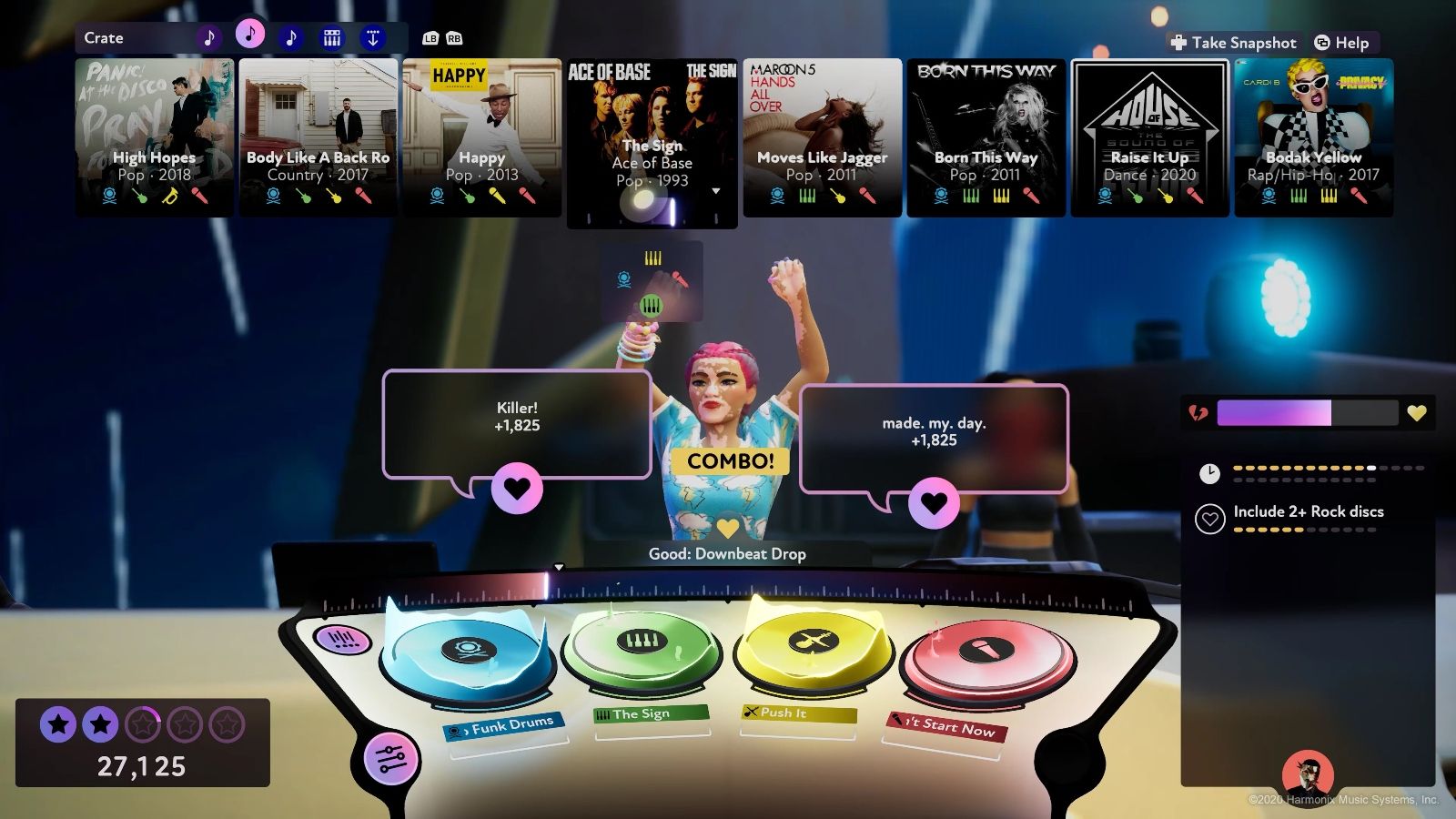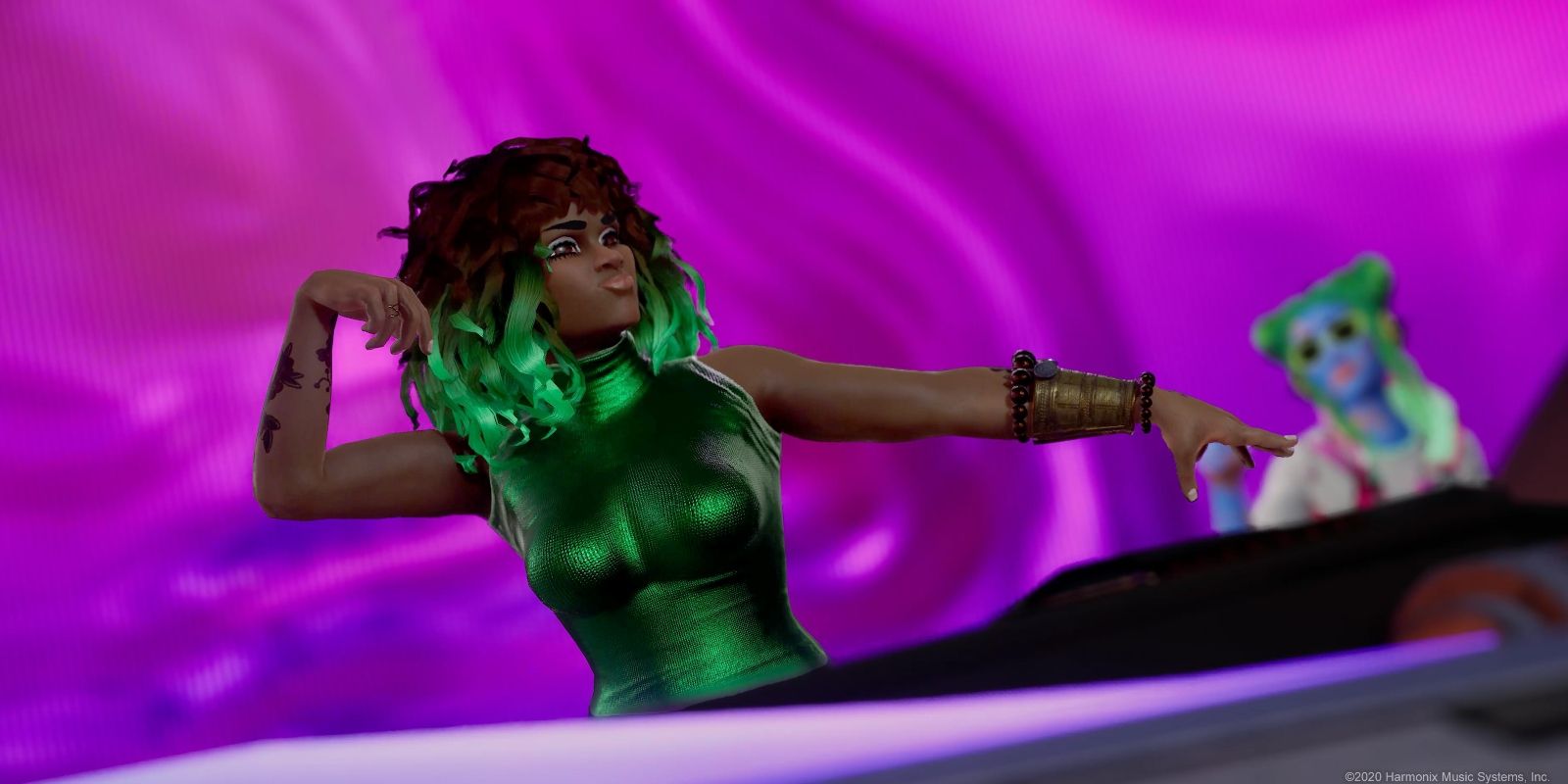In a year of canceled gatherings and social distancing during a stressful time where everyone could use the escapism events like music festivals provide, Fuser seeks to fill that void. Of course, a video game, no matter how well-made, can't fully replace the excitement and camaraderie of in-person gatherings and live music, but Fuser does a great job of replicating the artistry and general vibe that keeps music lovers coming back.
The new game from Harmonix, the developer best known for making the Rock Band games that were a staple of the mid-2000s combines elements of its 2017 title DropMix with unique, innovative mechanics that allow players to do more than just mimic playing their favorite songs using plastic peripherals. With Fuser, gamers with any amount of rhythm and creativity can craft mashups and mixes like professional DJs using a variety of tools.
Fuser's multitude of tracks, effects and other options can be overwhelming at first, but its campaign does a good job of easing players in. Each level focuses on introducing a new mechanic and building on what you've already learned, making it a good way to test out and master each of your options.
It starts out small, with the player getting used to timing disc drops and adding songs to a mix, before progressing to more challenging objectives, like making and dropping loops and swapping baselines on the downbeat. Of course, players who just want to make mixes and experiment with different features without worrying about completing objectives on time or impressing a crowd can jump straight into Freestyle.
Since the summer and early fall demos we were able to try out, Harmonix has added additional visual indicators to help players time drops. Also helpful is the ability to set and adjust calibration as needed. Obviously when playing a rhythm game, timing is everything, so it's important to be able to account for any input lag. There were a few technical issues encountered while playing Fuser on the Nintendo Switch, though these mainly involved cutscenes and didn't interfere with gameplay itself.
Of course, a game like this that so heavily emphasizes self-expression provides a character creator that allows players to do just that. Fuser's customization options deserve attention. Not only are there a variety of casual and theatrical options to pick from and unlock that allow players to create an avatar who reflects who they are (or who they want to be), but it also does a great job of celebrating diversity. In particular, the game honors the contributions of BIPOC artists to the DJ-ing and festival scenes by putting them at the center of the game. Sometimes it's in subtle but notable ways, such as placing darker skin tones ahead of lighter ones and including options for players of various skin tones with vitiligo.
More obvious are the game's promoters, who serve as mentors to players during the campaign. From their racial and ethnic backgrounds to their musical preferences to their performance styles and personalities, these characters are unique and diverse. For instance, there's Danny Humbles, the first promoter players will encounter on the Rhythmic Guardian stage. Danny's an energetic Black man who brings plenty of positive energy to the table, making him the perfect motivational mentor for new players. There's also Sub Astral's promoter Faint Shadow, who is a non-binary person from Mexico City with a laidback vibe.
There are some elements of the game that aren't particularly user-friendly, at least for console players. The controls were clearly optimized for a mouse, so those using a controller will have to use the left joystick to move a cursor over options and click on them. This works fine during gameplay when selecting songs or effects, but it can be frustrating when trying to navigate menus and the character creator.
Other disappointing aspects include the inability to select your character's pose or expression for their icon. This is basically left to chance, meaning you can easily end up with your eyes closed and your hair blocking your face. There's also the fact that, while you can save a variety of looks for your character, you can't just save separate outfits and hairstyles; you have to start from scratch each time, selecting things like your body shape and eye color even if you just want to save a second outfit.
However, these are ultimately nitpicks that do not take away from the main event: the music. Fuser itself is engaging and a joy to play. It's a game that celebrates creativity at all levels while also rewarding players for trying new things.
The song selection is also pretty good. While its mostly comprised of recent Hip Hop and Pop songs, there are also some great throwbacks and additional genres like R&B, Rock and Country. Songs like Shania Twain's "Any Man of Mine" and Otis Redding's "(Sittin' On) The Dock Of The Bay" work surprisingly well when combined with more obvious inclusions like Panic! At the Disco's "High Hopes" or Cardi B's "Bodak Yellow." Combining two songs that shouldn't sound good together or incorporating a "meme song" like "Never Gonna Give You Up" or "All Star" into a mix is a great feeling.
While music is obviously central, festival culture is about so much more than that; the social aspects and camaraderie are also vital. Music festivals are interactive spaces, and Fuser's social and multiplayer features have the potential to create a digital community. The ability to listen to what other players have made can be entertaining and inspire your own creations.
Meanwhile, Co-Op Freestyle and Battles represent both the collaboration and rivalries that come with making art. Testing out online multiplayer modes for an unreleased game is difficult considering how small the matchmaking pool is even with crossplay, but what we were able to play was promising.
Fuser itself has a lot going for it, but given the environment it's launching in, it's hard to foresee what the future holds for the game. This is a music-rhythm game, already a somewhat niche genre, that's launching on current-gen hardware on the same day that the first next-gen console launches. With that in mind, while the makings of a great, creative and inclusive social experience are present, Fuser's online elements may be held back if the game struggles to build an audience (an issue that's impacted other games with major online components).
Still, Fuser doesn't rely solely on its online elements, and there's plenty to do in Campaign and Freestyle modes. Whatever the coming weeks and months hold for the game, it doesn't change the fact that Fuser simply offers a fun and engaging experience that moves the music-rhythm genre in the right direction.
Developed by Harmonix and published by NCSoft, Fuser will release for PC, PlayStation 4, Xbox One and Nintendo Switch on November 10. A review copy was provided by the publisher.




